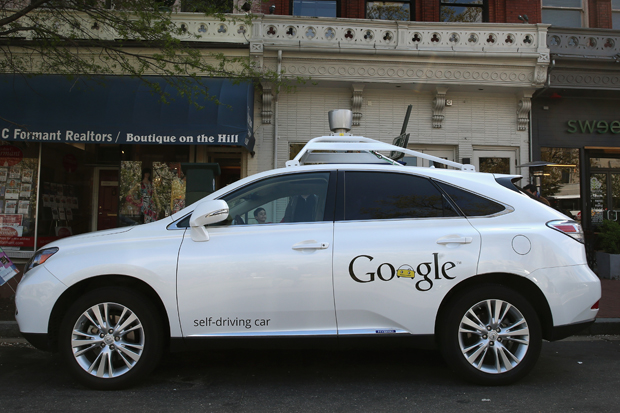I was listening to the radio the other morning to hear people complaining about the huge cuts in the number of traffic police patrolling English roads. This meant that drivers would disobey motoring laws with impunity, they said. They would babble away on their mobile phones, unfasten their seat belts, and generally break the rules of the road in the knowledge that they were most unlikely to get caught. The only things left for them to fear would be speed cameras. As a result, road deaths, of which there were already more than 1,700 in Britain last year, would go shooting up. A grim outlook indeed. But wait, there is hope on the horizon. This is the exciting prospect of the driverless car.
The Americans have already been trying out the driverless car on the roads of California, but now trials are to begin here in Britain; and one of the four places where they are going to happen is Milton Keynes, near to where I live. For these trials, which will take place this spring, the cars will not, in fact, be completely driverless, but taking a first step towards getting rid of their human masters. The vehicles used in the trials will be ‘highly automated’ as opposed to ‘fully automated’, meaning that they will be fitted with a set of manual controls for a human being to take charge if necessary. The ‘fully automated’ car, when it arrives, will be wholly self-reliant and brook no human intervention.
The advocates of the driverless car say it will be a boon for the old, the disabled and everyone else who finds driving difficult. It will make it possible for children to be driven alone to school while their parents stay home and finish their breakfasts. It will allow the third of women who don’t drive at present to have access to motor travel. But fine though all that is, it is as nothing compared with the social revolution that the invention will unleash. Maybe its advocates would rather not say so, but it will end the need for any kind of discipline when travelling by road. Not only will the passenger have nothing to do, he will have nothing to fear; for the car itself will observe speed limits and avoid accidents. So there’s no reason why the passenger shouldn’t do just as he pleases.
He may get drunk, for example, and it wouldn’t matter. He may unwrap Mars bars and eat hamburgers to his heart’s content without causing danger to anyone. He may talk and text on his mobile phone as much as he likes. He may quarrel and argue with his fellow passengers. He may watch television or play games on his computer. He may gaze out of the window in any direction he chooses. The only thing he may be forbidden to do is to smoke cigarettes, because smoking will probably be outlawed everywhere by then. It will be a life of blissful freedom, with no laws to break and no fear of traffic police. The driverless car, once programmed with the necessary information, will relieve you of all responsibilities, ferry you safely anywhere, and then park — though I’m not clear what it would do if it can’t find a parking space.
There will, of course, be lots of people who love driving and will resent all this — the Mr Toads of this world who like the roar of the engine, the grind of the gears, the ‘vroom’ of the accelerator and the screech of the brake. Until they eventually become extinct, they will attract all the attention of the remaining traffic police and will see their insurance premiums leap, being the only individuals capable of causing car accidents. At present about 90 per cent of accidents are caused by driver error, and there won’t be any driver error in cars without drivers. People with driverless cars are bound to pay far less insurance and won’t even need driving licences. It will be heaven for them.
Driverless cars won’t shout and swear at each other with purple faces, they won’t hoot and flash their lights, they won’t overtake each other on bends. They will proceed in gentle and stately fashion to their chosen destinations while their passengers have fun inside. They will spell the end of road rage and all the present stress and misery of life at the wheel. I can’t wait.
Got something to add? Join the discussion and comment below.
Get 10 issues for just $10
Subscribe to The Spectator Australia today for the next 10 magazine issues, plus full online access, for just $10.
You might disagree with half of it, but you’ll enjoy reading all of it. Try your first month for free, then just $2 a week for the remainder of your first year.













Comments
Don't miss out
Join the conversation with other Spectator Australia readers. Subscribe to leave a comment.
SUBSCRIBEAlready a subscriber? Log in